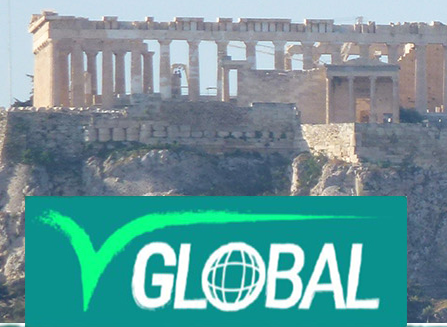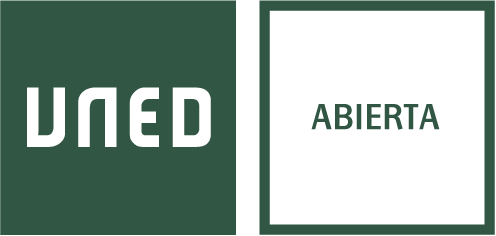Virtual Field Trip and Global Change: A Blended Learning Approach (2ed. 2024) UNED

This MOOC is part of the European Erasmus+ KA2 V-Global project, titled "Virtual Field Work in the Context of Global Change - a Blended Learning Approach for Higher Education." It has been created with the goal of consolidating the project's outcomes to enhance environmental education within higher education institutions. The primary aim is to support university teachers in adopting digital and innovative teaching methods, using virtual field trips and participatory tools. Raising awareness about global change serves as a catalyst, enabling educators to incorporate sustainability topics into their teaching and develop effective pedagogical strategies. You can download an explanatory brochure here.
Objectives
General Objectives:
- Promoting Education for Sustainable Development (ESD) at the university level by guiding university educators in adopting digital and innovative teaching practices, such as virtual field trips.
- Ensuring the provision of high-quality higher education, striving for excellence, and contributing to the development of a knowledge society by integrating teaching methods that address the challenge of enhancing students' digital skills
- Cultivating collaborative blended teaching concept within the framework of ESD.
Expecting Learning Outcomes:
- Developing an awareness of global change as a catalyst for considering sustainability issues in their future professional endeavours.
- Validating the effectiveness of the pedagogical scenarios that have been created.
Field of knowledge
Education.
Content
- Module 0 : Presentation and Introduction: This module provides a comprehensive overview of the course and outlines the operational aspects of the MOOC.
- Module 1 : Education for Sustainable Development (ESD) and Global Change: In this module, we delve into the challenges associated with teaching and integrating ESD and global change concepts into the curriculum.
- Module 2 : Create Virtual Field Trips: This module focuses on the educational approach to utilizing virtual field trips from the perspective of ESD.
- Module 3 : Participatory Tools and Processes: The module stablish a methodological framework for a digital toolkit of participatory methods, enhancing the overall learning experience.
- Module 4 : Applied Module: This module encourages the use of spatial and critical thinking skills by employing the participatory toolkit to create a virtual field trip that seamlessly integrates ESD and global change into the curriculum.
Assessment
- The course includes 4 self-assessment test exercises per module. To successfully complete the MOOC and qualify for accreditation, a minimum score of 60% is required.
- Midterm exams for each module contribute 80% to the final score, while the final test accounts for the remaining 20%.
- Each module's test is graded out of 20 points, with every question carrying a value of 4 points. The final test is graded out of 20 points, with every question carrying a value of 2 points. The maximum achievable score is 100 points.
- Interested individuals with a passion for environmental education, sustainable development (ESD), and a commitment to contributing to the achievement of the Sustainable Development Goals (SDGs) and the 2030 Agenda are encouraged to participate.
- Basic knowledge of English is recommended. The videos, evaluation form and the supplementary materials will be in English.
- University professors with an interest in receiving training for the purpose of incorporating virtual fieldwork into their teaching methods, particularly with an emphasis on sustainability education.
- María Luisa de Lázaro Torres and Marta Gallardo Beltrán (UNED, Directors)
- Caroline Leininger-Frézal (Université Paris Cité)
- Cédric Naudet (Université Paris Cité)
- Aurore Lecomte (Université Paris Cité)
- Maria Pigaki (National Technical University of Athens)
- Yannis Paraskevopoulos (National Technical University of Athens)
- Sandra Sprenger (Universität Hamburg)
- Kerstin Michalik (Universität Hamburg)
- Neli Heidari (Universität Hamburg)
- Constanze Struck (Universität Hamburg)
- Javier Álvarez-Otero (UNED)
- David Cocero Matesanz (UNED)
- Julio Fernández Portela (UNED)
- Manuel David García Reyes (UNED)
- Rossen Kostadinov Koroutchev (UNED)
- Francisco José Morales Yago (UNED)
- Juan José Pons Izquierdo (UNED)
- María Ángeles Rodríguez Domenech (EUROGEO and UCLM)
- Karl Donert (EUROGEO)
- Greg Donert (EUROGEO)
- Miguel Ángel Puertas Aguilar (EUROGEO)
- Sophie Wilson (EUROGEO and St Mary’s University)
- Eleni Mougiakou (Commonspace)
- Giorgos Velegrakis (Commonspace)
- Anastasia Christaki (Commonspace)
For detailed information on the accreditation process, content, refund policy, and other related matters, please refer to the FAQs section of IEDRA
From UNED Abierta, we recommend enrolling in the course as an auditor and initiating the accreditation process upon successful completion of the course.
Recommended Requirements
Target Group
Metadata
Keywords include: Global change, blended learning, distance learning, virtual field trip, Education for Sustainable Development, digital skills, innovative teaching, collaborative learning, e-leaning, face to face learning.
MEET YOUR INSTRUCTORS
Our instructional team comprises experts with extensive experience in environmental education, virtual expeditions, and participatory tools. The team includes teacher trainers specializing in both secondary and primary education, professors in geography programs at the bachelor's and master's levels, as well as experts in participatory and educational technologies.
